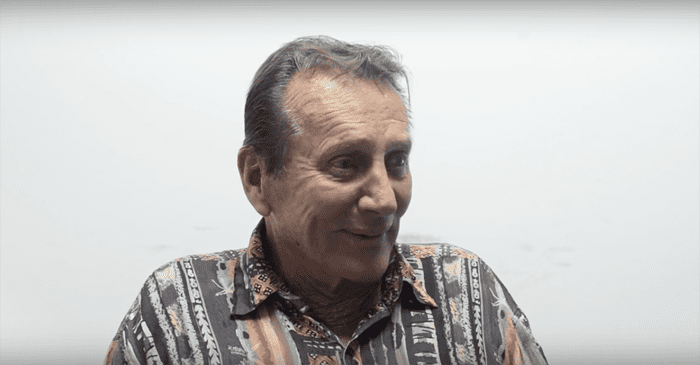Dan Fowlie, the one-time “King of Pavones” who is currently involved in a major land dispute in the town he helped build, has again been blocked from entering Costa Rica after a recent ruling from immigration authorities concluded he could “compromise public security.” The decision to declare Fowlie as a persona non grata for a second time came as a surprise to the 83-year-old U.S. citizen, who apparently was never given any direct notification.
In a phone call with The Tico Times Monday morning, Fowlie said he left the country the previous Thursday, Feb. 9, after a three-week stay in Costa Rica, and was never notified that he would not be allowed reentry to the country. He added he didn’t find out about the decision until the daily La Nación published an article quoting Public Security Minister Gustavo Mata as saying Fowlie would be barred from Costa Rica if he ever tried to come back.
In 2005, when Fowlie was released from U.S. prison after doing 18 years of a 30-year sentence on numerous drug-trafficking charges, Costa Rica declared Fowlie a persona non grata and barred him from re-entry. However, after the ruling was overturned in the Inter-American Court of Human Rights more than a decade later, Fowlie was able to return to the country last year.
“My attorneys will be fighting it,” Fowlie, who is in Mexico, said during the phone call. “The same people made the call to kick me out last time and it worked. My persona non-grata was based on a newspaper article.”
Fowlie has often argued that La Nación has given him unfair coverage, and claims it has used its leverage to help local investors and land owners who don’t want to see him in the country. Last year, when Fowlie legally entered Costa Rica on a new passport, La Nación published and then retracted a story stating he had entered the country illegally.
According to immigration records, Fowlie entered the country seven times during the last year. Usually spending two or three weeks at a time, Fowlie said he never had any problems or confrontation with authorities during those visits.
The man who helped build the infrastructure in Pavones, the idyllic coastal hamlet on Costa Rica’s southwest corner, previously owned an estimated 80 percent of the town’s property before being jailed in the 1980s. After his arrest, his properties were immediately squatted on and divided into separate titles under other people’s names.
Fowlie has always claimed he has the original titles to most of his former properties, though he has yet to present them.
Fowlie told The Tico Times that Costa Rican officials zoned in on him after he purchased a house from infamous fraudster Robert Vesco, who paid the government here a stipend to obtain a haven from U.S. authorities.
Still, the glaring question remains: is an 83-year-old man truly going to make Costa Rica less safe? When the Tico Times tried to reach the Public Security Ministry through phone and email to get an answer to that question, spokespeople said any requests would have to be made through Immigration officials. When The Tico Times contacted an Immigration spokeswoman Monday afternoon, she said a comment would have to be made by someone from the Public Security Ministry.
Mata told La Nación that Fowlie has struck fear into the Pavones community because drug traffickers in the area could see him as a rival, though he cited no evidence in the article to back that claim.
“We have to avoid having undesirable people coming into the country,” Mata said to La Nación. “We can’t allow the country to be seen by foreigners as a place to hide out or commit crimes.”
The legal foundation for banning Fowlie from the country is located in a section of Article 61 of the Immigration Law, which gives authorities the right to bar a foreigner from entry if “it’s considered that his entry compromises public security.” The small section of the article has been used in other polemic cases, such as the time last year that Mata ordered border authorities to deny entry to Nicaraguan comedian Reynaldo Ruíz, who’s famous for making fun of Costa Rican dialect and attitudes.
Fowlie, however, claims there’s an ulterior motive to the reason for denying his reentry: “They know they are stealing my land.”






